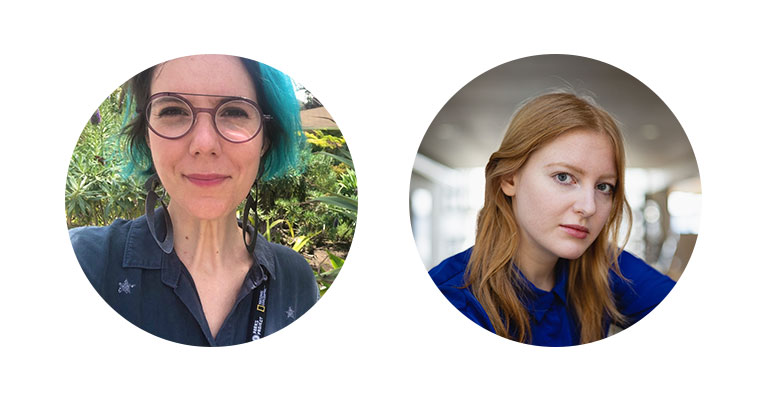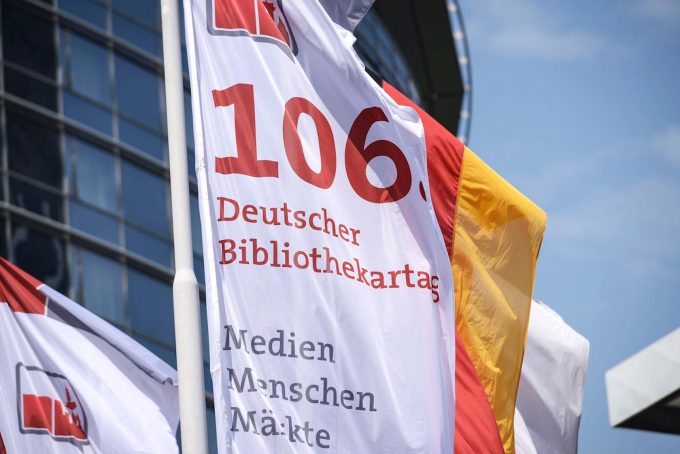
Open Science Policies: What About Equity and Inclusion?
Open Science policies are meant to foster Open Science in general. However, most of these policies seem to fall short of expectations when it comes to promoting all aspects of Open Science, especially promoting an Open Science culture. Two of the authors answered some interview questions on their findings in a study of Open Science policies.
by Natascha Chtena and Isabelle Dorsch

The study “The neglect of equity and inclusion in open science policies of Europe and the Americas” was published in November 2023 and used a qualitative document research approach. One of its findings is that Open Science policies tend to focus on a narrow set of practices, particularly Open Access and Open Data, and do not effectively capture the democratic, participatory and inclusive ethos of Open Science.
Two of its authors, Natascha Chtena, a postdoctoral fellow in the Scholarly Communications Lab at Simon Fraser University, and Isabelle Dorsch a postdoctoral fellow at the ZBW and in the Scholarly Communications Lab, shed a light on their findings in this interview.
What are the key findings of your study?
Our study has three main findings. First, we found that Open Science (OS) policy documents are overwhelmingly focused on furthering two specific aspects of OS—namely Open Access and Open Data. The focus, in other words, is on outputs rather than processes (like Open Methodology and engagement of societal actors), which significantly limits the emancipatory and democratic potential of OS. Second, we found that policy documents, despite touting the benefits of OS for society, deprioritize citizen engagement and participation in OS—especially in North America and Western Europe—and also lacked concrete guidance on how to meaningfully involve diverse publics in OS processes. Third, we found that the concepts of equity, diversity and inclusion are absent from a lot of OS policy documents and, even when present, are not translated into actionable recommendations for researchers and other OS stakeholders. Overall, we found a disconnect between how OS is conceptualized and how it is implemented in policies and regulatory frameworks.
What problems did you find regarding Open Science policies?
A key insight from our study is that some of the core values of OS (for instance, the desire to contribute to the collective good, the desire to bridge knowledge divides that exist between and within countries) are not well reflected in current policy language. Most of the practices and measures being promoted are rather inward facing and designed to serve a narrow set of interests. Additionally, the majority of stakeholders publishing OS policies and policy guidance are currently located in Europe, despite OS being a global movement that includes diverse constituencies with diverse needs and goals. While this is not de facto a “problem,” it is certainly something worth interrogating.
Did you find anything surprising in your study?
We were somewhat surprised that most of the documents did not discuss the importance of including multiple knowledges and perspectives in the OS continuum. This omission is stark given how valuable partnerships across diverse knowledge systems can be for both scientific progress and scientific policy-making. We were also surprised that strategies for multilingual knowledge production and dissemination were largely absent in the documents examined.
What conclusions would you draw from your study? What advice would you give?
We observed a strong trend to hierarchize OS aspects—and, by extension, policy goals—according to their perceived utility value and importance, which, on the one hand, is in line with the pragmatic nature of policy-making but, on the other, creates the illusion that supporting one goal (for instance, open and interoperable infrastructures) has to come at the expense of others (for example, public engagement and participation). However, these can and should be promoted concurrently if the full potential of OS is to be realized. Comparing our results to the implementation level of OS, the strong focus on Open Access and Open Data in OS policies tends to be in agreement with what is already more broadly implemented and applied. Practices like preregistration, Open Methodology, or Open Peer Review are not yet widespread, established, or standardized. Case studies or specific disciplines are just making ground for these practices, so their inclusion in a broadly centered policy can be more difficult. However, new policies are often modeled on existing ones, which can lead to a mere reproduction of the status quo. Additionally, one thing the history of technology has taught us is that retrospective integration of values like equity and inclusiveness into existing sociotechnical systems is fraught with barriers, challenges and obstacles.
While the UNESCO Recommendation on Open Science seeks to address some of these issues by putting forth a widened definition of OS and highlighting aspects – or “pillars” – of OS that are often neglected (for instance, open engagement of societal actors), our findings suggest that there is a long way to go and, without concerted effort, we risk materializing a version of OS that perpetuates a lot of the problems and injustices of the “traditional” science system. Sustained conversations between researchers, policymakers and community stakeholders are crucial in this regard, hence we are making every effort to share our results widely and with the broadest possible audience.
Original paper: The neglect of equity and inclusion in open science policies of Europe and the Americas.
The study is part of the VOICES project (Value of Openness, Inclusion, Communication, and Engagement for Science in a Post-Pandemic World), seeking to investigate and share new empirical evidence of the value of opening science, to other scholars and to the public, during and beyond the COVID-19 pandemic. (More information).
Our project team consists of: Juan Pablo Alperin (PI), Germana Barata (Co-PI), Isabella Peters (Co-PI), Stephen Pinfield (Co-PI), Alice Fleerackers (Postdoctoral Fellow), Natascha Chtena (Postdoctoral Fellow), Monique Oliveira (Postdoctoral Fellow), Isabelle Dorsch (Postdoctoral Fellow), Melanie Benson Marshall (Postdoctoral Fellow).
This might also interest you:
- Research Software Directory: Honouring the Role of Software and Supporting Reproducibility
- Open Access: Is It Fostering Epistemic Injustice?
- Open Access: AfricArXiv Facilitates Knowledge Exchange Between Africa and Europe
- Open Science Monitoring: Openness as a Natural Part of Good Research Practices in Finland
Natascha Chtena is a Postdoctoral Research Fellow in the Scholarly Communications Lab at Simon Fraser University, Canada. She is a former journalist and magazine editor with a long-standing interest in open knowledge, democratic participation, and public scholarship. She can also be found on ORCID, LinkedIn and X.
Portrait Natascha Chtena: Photographer: Jonathan Mauer©
Isabelle Dorsch is a postdoctoral fellow at the ZBW – Leibniz Information Centre for Economics in Kiel, Germany and in the Scholarly Communications Lab, Canada. Open Science, scientometrics, scholarly communication, social media, and metrics literacies are fields of research she studies or is interested in. She can also be found on ORCID, LinkedIn and BlueSky.
Portrait Isabelle Dorsch: ZBW©, photographer: Pepe Lange
View Comments

Trends 2024: Workplace Revolution Leveraging old and new Technologies
Which trends will shape library work in 2024? Generative AI, hybrid work and a skills...



